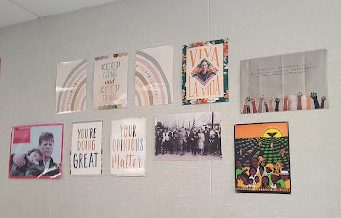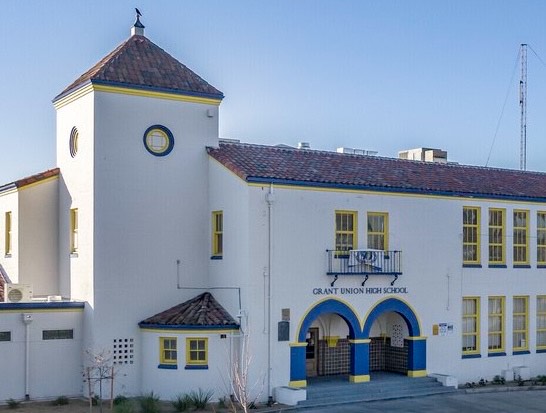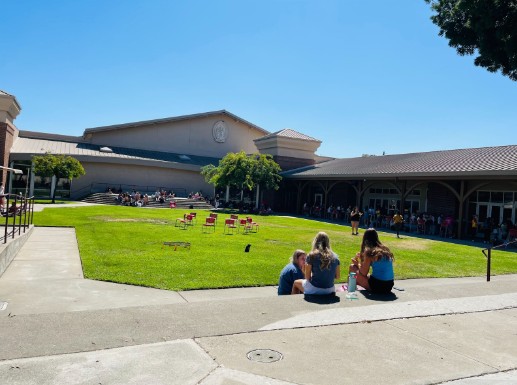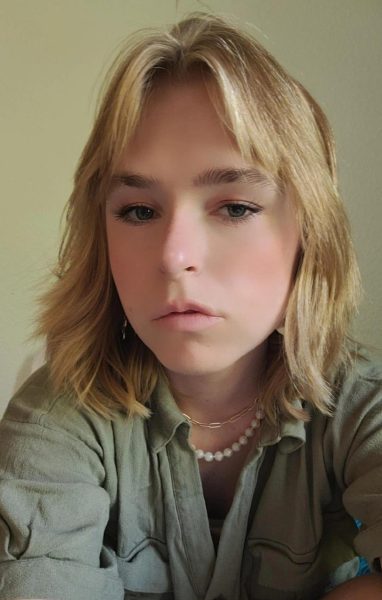A brand new class at Cordova High that explores the interconnected cultures of the world, titled Ethnic Studies, has some enrolled students excited.
Pamela Lopez, a sophomore, is currently taking the class. She said she wants to become an activist of sorts.
“Ethnic studies talk about the depths of social issues going on or that have happened,” said Lopez. “The subject shows activism and social movements so I knew that I wanted to be in a class like that.”
She said Ethnic Studies has changed her perspective on history and added that she “can’t wait to learn more.”
Lopez said she also feels attached to the subject matter.
“When we talk about Latin culture or when we learned about how students in (Arizona) were fighting to continue having an Ethnic Studies class I did feel attached,” she said.
Alexandra Castillo, one of the two Ethnic Studies teachers, said, “Ethnic Studies focuses on African American, Native American, Asian, Pacific Islander, and Hispanic cultures within the United States. It’s essentially US History, but rather than looking at the voices of the people that you typically hear in a US history class, you’re looking at the voices of the marginalized groups in the United States.”
Cole Cooper, the other Ethnic Studies teacher, said, “We’re focusing on the margins, whereas (history teachers) focus (more) on California standards.” He said by asking students to examine and reflect on the history, struggles, and contributions of diverse groups within the context of racism and bigotry, ethnic studies can demonstrate the importance of equity and justice.
The new program started nine months after the Folsom Cordova Unified School District board adopted a district-wide elective ethnic studies curriculum.
Additionally, a law that was passed in 2021 will make ethnic studies a prerequisite for graduating from high school across the state. The 2030 class will be the first subject to the requirement. Under the law, Ethnic Studies courses are required in all secondary schools beginning with the 2025–2026 academic year.
Castillo said students pioneered the Ethnic Studies program.
“(Students) look at our population here at Cordova High School, and you’re seeing a very diverse population where a lot of the students don’t see themselves in the textbook,” she said. “So many students want that and want that familiarity in their classes to talk about things that they can relate to. They went and they fought for it and it’s going to be a requirement.”
Cooper said that every unit the class covers, each four weeks long, will be centered around identity, movements in history, systems of power and social action.
“We do want to focus more, I think, on modern movements,” Cooper said. “You know, less about testing them on obscure figures from the 1800s but rather talk about how it (history) applies to them today. We do want to pay homage to those great figures that get overlooked a lot of times, but I think that the main idea would be to kind of open a window to what social issues have been tackled recently, and then what progress has been made.”
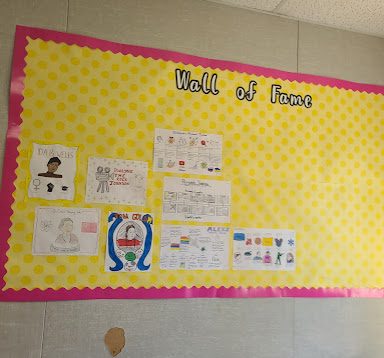
Cooper said US history teaching should not be repeated in the Ethnic Studies program.
“With ethnic studies, we want to focus on some of the things that they don’t talk about (in US History), things like housing discrimination and redlining; the bombing of Tulsa and civil rights leaders who are not Martin Luther King, Jr.,” he said.
Cooper remembered how he felt restricted when attending school in Folsom, California, where he said “diversity was non-existent.” Copper said this class “allows me to focus on the areas that I’ve always wanted to dive into more or even gotten in trouble for diving into . . . while it’s all in the curriculum, so it’s all sanctioned.”
Some Folsom Cordova Unified School District board members expressed some concern about the class. Three voiced the fear that it may encourage “white guilt,” according to Cooper.
He added, “I think that’s denying the history of our students and their parents and grandparents and what they went through to get to where they are today. I think more than anything, we need to understand the context of how we got here as a society and what are some obstacles that maybe our white students have never heard about before.”
Despite concerns, the district board unanimously approved the Ethnic Studies curriculum on December 15, 2022, Superintendent Sarah Koligian and board president David Reid President said in an email.
Koligan added, “Ethnic studies serve three purposes: (1) addresses racialized experiences and ethnic differences as real and unique; (2) builds greater understanding and communication across ethnic differences; and (3) reveals underlying commonalities that can bind by bringing individuals and groups together.”
The FCUSD staff presentation to the board referred to the Fair, Accurate, Inclusive and Respectful Act of 2011, and how it is essential for the district to “recognize our responsibility to our students in providing a curriculum that is representative of their diverse backgrounds.” The report noted how other districts like Sacramento City Unified, Los Angeles Unified, and Fresno Unified, among others, have already implemented Ethnic Studies classes as a part of their curriculum. The report also stressed the district had “a legal obligation to represent culturally and diverse groups accurately.”
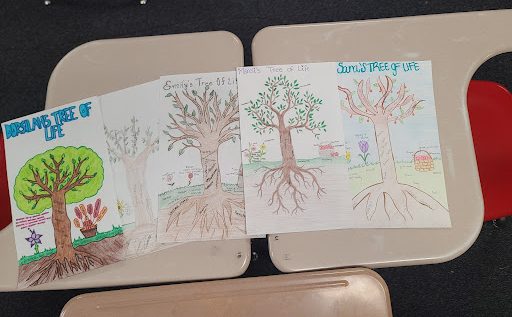
(Kay)
Cooper said that since the class is new, it is hard to promote and get more kids to join, even though there are roughly 100 students enrolled. He did, however, express optimism that students would eventually recognize the value of developing a greater knowledge of ethnically varied societies.
“Maybe, some of the hate stuff that we (have) seen in the last few years will start to fade away once kids understand what they’re doing, and what those things mean to these communities,” Cooper said.


